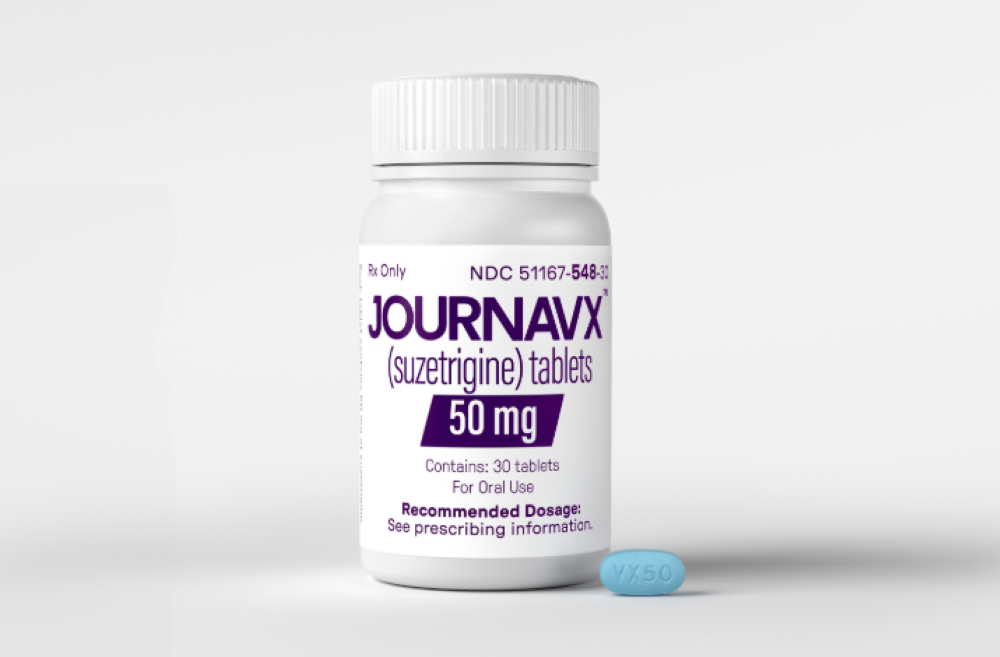Welcome BioPharmaPulse Readers
Welcome to another edition of BioPharmaPulse! This week, we delve into groundbreaking developments in the biopharmaceutical world, including major acquisitions, promising clinical trial results, and the latest in regulatory approvals.
What's in this issue:
- 💰 Novartis reacquires a promising clot-busting candidate in a monumental deal.
- 🧪 Pfizer's innovative prostate cancer therapy shows impressive early results.
- 💊 Vertex unveils plans to launch a new non-opioid pain reliever.
- 🌐 Discover how Bio X Cell is expanding its global footprint.
- 📝 Dive into the next generation of anticoagulants with our Industry Insight.
Inspiration of the Day
"Innovation is seeing what everybody has seen and thinking what nobody has thought." — Dr. Albert Szent-Györgyi
Latest Developments
💰 Novartis Reacquires Promising Clot-Busting Candidate in $3.1B Deal (2-minute read)

Rundown:
Novartis is set to acquire Anthos Therapeutics, a startup it helped launch in 2019, in a deal worth up to $3.1 billion. The acquisition brings abelacimab, a novel anticoagulant currently in late-stage trials, back into Novartis' pipeline. Abelacimab aims to offer safer blood-thinning options by targeting Factor XI, potentially reducing bleeding risks associated with current therapies.
Key Points:
- 💰 Novartis to pay $925 million upfront, with potential total payments up to $3.1 billion.
- 🩸 Abelacimab is designed to be a safer anticoagulant by inhibiting Factor XI.
- 🔬 Phase 3 trials are ongoing, with results expected next year.
- 🤝 Acquisition reflects Novartis' commitment to cardiovascular innovation.
Why it matters:
This acquisition underscores the industry's focus on developing safer anticoagulants, addressing a significant need for patients at risk of clotting disorders. If successful, abelacimab could offer a new therapeutic option with fewer bleeding risks, improving patient outcomes in conditions like atrial fibrillation and cancer-associated thrombosis.
🧪 Pfizer's Prostate Cancer Therapy Shows Promising Phase 1 Results (2-minute read)

Rundown:
Pfizer has unveiled encouraging phase 1 data for its investigational prostate cancer therapy, which, when combined with Xtandi, reduced disease progression risk by 49% compared to Xtandi alone. The data was released ahead of its scheduled presentation, highlighting the potential of this combination therapy in treating metastatic castration-resistant prostate cancer.
Key Points:
- 📉 49% reduction in disease progression with combination therapy.
- 📆 Data leaked ahead of scheduled presentation at ASCO GU.
- 🧬 Therapy targets advanced prostate cancer patients.
- 💡 Combination aims to enhance current standard of care.
Why it matters:
Prostate cancer remains a leading cause of cancer-related deaths among men. Pfizer's promising results offer hope for more effective treatments, potentially improving survival rates and quality of life for patients with advanced stages of the disease.
💊 Vertex to Launch Non-Opioid Pain Reliever Journavx (2-minute read)

Rundown:
Vertex Pharmaceuticals is preparing to launch Journavx, a newly FDA-approved non-opioid pain medication. Aiming to provide an alternative to opioids for acute pain management, Journavx could play a crucial role in addressing the opioid crisis by offering effective pain relief without the risk of addiction associated with opioids.
Key Points:
- 🚀 Journavx offers non-opioid pain relief for acute pain.
- 💰 Priced competitively to encourage adoption over opioids.
- 🏥 Vertex engaging with hospitals and health systems for rollout.
- 📊 Part of Vertex's strategy to expand product portfolio beyond cystic fibrosis.
Why it matters:
With the ongoing opioid epidemic, there is a pressing need for effective pain management alternatives. Journavx could potentially reduce reliance on opioids, lowering the risks of addiction and overdose, and marking a significant advancement in pain therapeutics.
Question of the Day
❓ Which innovative development in biopharma excites you the most?
- 💊 Non-opioid pain therapies like Journavx
- 🧬 Novel cancer treatments like Pfizer's prostate cancer therapy
- 🩸 Safer anticoagulants like abelacimab
Trending
🌐 Bio X Cell Expands into China with New Distribution Center
- The antibody supplier enhances collaboration with Chinese researchers by opening a new facility in Beijing, improving inventory availability and order fulfillment speed.
🧪 SpringWorks Therapeutics Wins FDA Approval for Nerve Tumor Treatment
- SpringWorks receives FDA approval for Gomekli, a treatment for adults with certain types of nerve tumors, marking their second approved therapy.
🏙️ GSK Moves Vaccine R&D Center to Boston Area
- GSK plans to relocate its vaccine and infectious disease R&D teams from Maryland to Cambridge, enhancing its presence in the biotech hub.
Industry Insight
📝 Understanding Factor XI Inhibitors: The Next Generation of Anticoagulants
Anticoagulants are vital in preventing dangerous blood clots, but traditional therapies like warfarin and direct oral anticoagulants can carry significant bleeding risks. Enter Factor XI inhibitors—a new class of anticoagulants aiming to provide effective clot prevention with fewer side effects.
Factor XI is a protein involved in the blood coagulation cascade. By selectively targeting Factor XI, these inhibitors, such as Novartis' abelacimab, potentially reduce the risk of clots without profoundly affecting normal hemostasis. This means patients may experience fewer bleeding complications, a common concern with existing anticoagulants.
Understanding the mechanism and benefits of Factor XI inhibitors can help healthcare professionals make informed decisions about anticoagulation therapy, offering patients safer alternatives for conditions like atrial fibrillation and venous thromboembolism.
Quick Hits
⚡ Inventiva Cuts Pipeline, Halves Staff to Focus on MASH Drug (2-minute read)
- Inventiva is restructuring by reducing its workforce by 50% and focusing resources on its lead MASH (non-alcoholic steatohepatitis) drug, lanifibranor, aiming for Phase 3 readout.
⚡ Biohaven Gets FDA Priority Review for Neurological Disease Drug (2-minute read)
- After a previous refusal to file, Biohaven's troriluzole for spinocerebellar ataxia receives FDA priority review, with a decision expected within six months.
⚡ Voyager Therapeutics Delays ALS Gene Therapy Clinical Plans (2-minute read)
- Voyager is postponing clinical trials for its ALS gene therapy candidate as it seeks alternative payload options, indicating challenges in its development program.
⚡ Libtayo Approved in Scotland for Cervical Cancer Patients (2-minute read)
- Scottish Medicines Consortium approves Libtayo (cemiplimab) for use in recurrent or metastatic cervical cancer, offering new hope for patients with limited treatment options.
⚡ Third Harmonic Bio Restructures, Advances Urticaria Drug (2-minute read)
- Third Harmonic Bio is laying off half its workforce while planning to advance its chronic spontaneous urticaria drug into Phase 2 trials despite previous side effects.
Wrap Up
Thank you for joining us in this edition of BioPharmaPulse! It's an exciting time in biopharma, with innovations that have the potential to transform patient care. We're committed to keeping you informed about the developments that matter.
If you found this newsletter valuable, feel free to share it with your colleagues and friends. Your support helps us continue to bring you the latest insights in biopharmaceutical innovation.
Until next time, stay curious and keep your finger on the pulse!
Warm regards,
Elliot Reeves | BioPharmaPulse
📨 How did you like today's email?
- 😊 Loved it
- 🙂 It was OK
- 😕 Could be better
